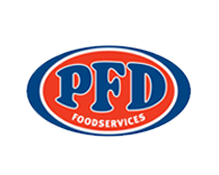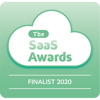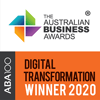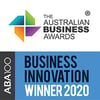Statistics
Statistics:Statistics is the study of the collection, analysis, interpretation, presentation, and organization of data. It deals with all aspects of this, including the planning of data collection in terms of the design of surveys and experiments.
Statistics is a crucial aspect of modern life. It provides us with the capacity to understand and interpret data in order to make informed decisions. Statistics has been used for centuries, but only recently have we begun to fully appreciate its power and importance. Through rigorous analysis, statisticians can uncover patterns that help shape our world. This article will provide an overview of statistics, discussing how it works and why it matters today.
The use of statistical methods allows us to draw conclusions from facts and figures. By examining large datasets, trends can be identified which would otherwise remain hidden among the noise. Statistical models are then applied to these trends in order to extrapolate meaningful insights about the underlying phenomena. With this information at their disposal, decision makers can make more informed choices when faced with complex issues such as health care management or economic forecasting.
Beyond merely providing insight into existing problems, statistics also offers predictive capabilities that allow us to anticipate future outcomes based on past performance. These predictions are invaluable tools when planning for the future and they give governments and businesses alike the ability to prepare for what lies ahead. In short, statistics is essential for understanding both present-day reality and preparing for tomorrow's possibilities..
What Do You Mean By Statistics?
Statistics is an area of mathematics used to analyze and interpret data. Statistical analysis can be applied in many fields, such as economics, business, health sciences, psychology or artificial intelligence. For example, economists may use statistical methods when studying the Gross Domestic Product (GDP) of countries or analyzing patterns in stock prices. In health sciences, researchers might employ statistical techniques to study the age of death for people with liver disease or calculate alcohol attributable deaths due to heavy drinking.
Rather than simply describing what happened in the past however, statistics also offers a way to make predictions about future events. Mathematical models are developed which account for existing information and allow us to estimate things like how many premature deaths will occur in a particular population over time. Understanding these predictive capabilities has become increasingly important given the ever-growing role of technology and its application in areas such as artificial intelligence and machine learning. Statistics plays an essential part not just by providing insights into current situations but also helping us plan for what lies ahead - offering valuable insights into the future of our world. However, this power comes at risk if there is a misunderstanding of how statistics works which could lead to incorrect interpretations being made from the results generated from statistical models.
What Are The Four Types Of Statistics?
Statistics is the practice of collecting, analyzing and interpreting data. It helps us to understand patterns in a variety of contexts. There are four types of statistics: descriptive, inferential, stochastic and probability.
Descriptive Statistics involve summarizing numerical information by using graphs or tables. For example, the United States Census Bureau provides data on the percent of adults ages 18-24 who have completed high school education. This type of statistic gives us an idea about trends in educational attainment over time.
Inferential Statistics rely on sampling techniques to draw conclusions about larger populations from smaller samples. For instance, if we wanted to know what percent people aged 65+ had bachelor's degrees in the U.S., we might use inferential statistics to estimate this figure without studying all individuals in that age group nationwide.
Stochastic Analysis involves making predictions based on probabilities derived from random variables such as stock prices or weather forecasts. Probability applies when there is uncertainty involved; for example, it can be used to determine the likelihood that certain events will occur given certain conditions (or vice versa).
The range of types of statistics ensures that there is something suitable for any research question one may pose - whether it’s determining how many women own businesses in a particular area or investigating differences between types of cancer treatments. By utilizing these different statistical approaches, researchers can better understand their data and make more informed decisions regarding their research objectives.
Why Do You Study Statistics?
Statistics is an essential methodology for understanding data in many fields. It can be used to analyze a wide range of issues, from crash course statistics to data science studies. An understanding of the basic principles and concepts of statistics enables informed decision-making based on evidence rather than guesswork. There are numerous reasons one should study statistics:
Firstly, it provides a framework for correctly selecting tests when dealing with categorical variables or normal distributions. Secondly, by learning probability theory and hypothesis testing, one can better evaluate null hypotheses and ensure accuracy in results. Thirdly, permutation tests enable researchers to determine which patterns within datasets are significant and meaningful - this is particularly valuable when working with large datasets.
In essence, studying statistics equips individuals with the skills necessary to interpret information accurately and make decisions backed up by strong evidence. This skill set is invaluable in all branches of research regardless of context; as such, it is important that those who intend to take part in any form of investigation have at least a basic knowledge of statistical tools and techniques.
What Are 5 Uses Of Statistics?
Statistics is a powerful tool used in many different fields. It has the potential to provide insight into any given data set, allowing researchers and analysts to draw accurate conclusions from the data they collect. This article will look at five uses of statistics, covering how affluent people use statistical methods for economic analysis, how educational institutions use it to evaluate student performance, and how statistical inference can help us better understand any given phenomenon.
Statistical methodology is widely used by affluent people to make informed decisions about investments or purchases. By using various forms of statistical analysis, investors are able to analyze large datasets and identify trends which could indicate favorable investment opportunities or risks that should be avoided. Additionally, these same techniques can also be applied to marketing research where companies measure customer sentiment towards their products. Statistical inference provides valuable insights into consumer behavior which can then be leveraged in order to maximize profits.
Education institutions have been utilizing statistics since ancient times as a means of assessing students’ progress throughout a course level or final exam grade point average (GPA). These evaluations rely on the ability of statisticians to accurately interpret a dataset containing grades earned on each assignment or test taken during an academic term. Statisticians are then able to calculate the mean, median, standard deviation, etc., all figures which enable educators to assign letter grades based upon an individual student's performance compared with that of their peers within the same class period.
Finally, statistical methods are also useful when analyzing complex phenomena such as climate change or population growth patterns over time. In this case, scientists employ various forms of regression models in order to gain insight into trends observed over multiple years or even centuries depending on the particular issue being studied. Through careful observation and interpretation of these trend lines, researchers are often able to make more accurate predictions regarding future occurrences related to changes in weather patterns or population dynamics.
Conclusion
Statistics is a branch of mathematics that deals with the collection, organization, analysis and interpretation of data. It enables researchers to make predictions about their subject matter by collecting data from various sources and analyzing it for patterns or trends. Statistics are used in almost all areas of science, including social sciences, economics, medicine, engineering and business.
The four main types of statistics include descriptive statistics which summarize large sets of data into a concise form; inferential statistics which use probability theory to draw conclusions based on sample data; observational statistics which observe phenomena directly without manipulating them; and predictive statistics which forecast future outcomes using past experiences. By studying these types of statistics together, one can gain an understanding of how different variables interact with each other and affect the overall outcome.
Statistics have numerous real-world applications such as helping businesses analyze customer behavior to improve their products or services; predicting stock market movements; forecasting economic trends; designing experiments to test scientific theories; tracking progress towards public health goals; monitoring election results; assessing marketing campaigns; analyzing survey responses and much more. Through its ability to interpret complex datasets accurately and efficiently, statistical analysis has become essential for understanding many aspects of our world today.
PREVIOUS NARROW AI GLOSSARY TERM
Statistical pattern recognition
NEXT NARROW AI GLOSSARY TERM
Structural pattern recognition
Statistics Definition
Exact match keyword: Statistics N-Gram Classification: Statistical Analysis, Descriptive Statistics, Inferential Statistics Substring Matches: Stat, stic Long-tail variations: "Statistical Analysis", "Descriptive Statistics", "Inferential Statistics" Category: Education, Mathematics Search Intent: Research, Education Keyword Associations: Probability, Data Analysis, Data Science Semantic relevance: Probability Theory, Data Analysis, Mathematics Parent Category: Mathematics Subcategories: Probability Theory, Mathematical Statistics, Applied Statistics Synonyms: Data Analysis , Maths Similar searches: Probability Theory , Mathematical Statistics , Applied Statistics Geographic relevance : Global Audience demographics : Students , Researchers , Professionals Brand mentions : SAS Institute , IBM SPSS , Tableau Industry-specific data : Regression coefficients , p-value Commonly used modifiers : "Analysis" ,"Software" ,"Techniques" Topically relevant entities : Probability Theory , Mathematical Statistics , Applied Statistics Statistical Modeling & Algorithms; Statistical Inference; Regression Analysis; Time Series Analysis."Larry will be our digital expert that will enable our sales team and add that technological advantage that our competitors don't have."
Kerry Smith
CEO, PFD Foods
$1.6 billion in revenue 
"Lion is one of Australasia’s largest food and beverage companies, supplying various alcohol products to wholesalers and retailers, and running multiple and frequent trade promotions throughout the year. The creation of promotional plans is a complicated task that requires considerable expertise and effort, and is an area where improved decision-making has the potential to positively impact the sales growth of various Lion products and product categories. Given Complexica’s world-class prediction and optimisation capabilities, award-winning software applications, and significant customer base in the food and alcohol industry, we have selected Complexica as our vendor of choice for trade promotion optimisation."
Mark Powell
National Sales Director, Lion
"At Liquor Barons we have an entrepreneurial mindset and are proud of being proactive rather than reactive in our approach to delivering the best possible customer service, which includes our premier liquor loyalty program and consumer-driven marketing. Given Complexica’s expertise in the Liquor industry, and significant customer base on both the retail and supplier side, we chose Complexica's Promotional Campaign Manager for digitalizing our spreadsheet-based approach for promotion planning, range management, and supplier portal access, which in turn will lift the sophistication of our key marketing processes."
Richard Verney
Marketing Manager
Liquor Barons

"Dulux is a leading marketer and manufacturer of some of Australia’s most recognised paint brands. The Dulux Retail sales team manage a diverse portfolio of products and the execution of our sales and marketing activity within both large, medium and small format home improvement retail stores. We consistently challenge ourselves to innovate and grow and to create greater value for our customers and the end consumer. Given the rise and application of Artificial Intelligence in recent times, we have partnered with Complexica to help us identify the right insight at the right time to improve our focus, decision making, execution, and value creation."
Jay Bedford
National Retail Sales Manager
Dulux

"Following a successful proof-of-concept earlier this year, we have selected Complexica as our vendor of choice for standardizing and optimising our promotional planning activities. Complexica’s Promotional Campaign Manager will provide us with a cloud-based platform for automating and optimising promotional planning for more than 2,700 stores, leading to improved decision-making, promotional effectiveness, and financial outcomes for our retail stores."
Rod Pritchard
Interim CEO, Metcash - Australian Liquor Marketers
$3.4 billion in revenue 
"After evaluating a number of software applications and vendors available on the market, we have decided to partner with Complexica for sales force optimisation and automation. We have found Complexica’s applications to be best suited for our extensive SKU range and large set of customers, being capable of generating recommendations and insights without burdening our sales staff with endless data analysis and interpretation.
Aemel Nordin
Managing Director, Polyaire
"DuluxGroup is pleased to expand its relationship with Complexica, a valued strategic partner and supplier to our business. Complexica’s software will enable DuluxGroup to reduce the amount of time required to generate usable insights, increase our campaign automation capability, personalise our communications based on core metrics, and close the loop on sales results to optimise ongoing digital marketing activity."
James Jones
Group Head of CRM, DuluxGroup
"Instead of hiring hundreds of data scientists to churn through endless sets of data to provide PFD with customer-specific insights and personalised recommendations, Larry, the Digital Analyst® will serve up the answers we need, when we need them, on a fully automated basis without the time and manual processes typically associated with complex analytical tasks.”
Richard Cohen
CIO, PFD Foods
$1.6 billion in revenue 
"As a global innovator in the wine industry, Pernod Ricard Winemakers is always seeking ways to gain efficiencies and best practices across our operational sites. Given the rise of Artificial Intelligence and big data analytics in recent times, we have engaged Complexica to explore how we can achieve a best-in-class wine supply chain using their cloud-based software applications. The engagement is focused on Australia & New Zealand, with a view to expand globally."
Brett McKinnon
Global Operations Director, Pernod Ricard Winemakers
"70% - 80% of what we do is about promotional activity, promotional pricing -- essentially what we take to the marketplace. This is one of the most comprehensive, most complex, one of the most difficult aspect of our business to get right. With Complexica, we will be best in class - there will not be anybody in the market that can perform this task more effectively or more efficiently than we can."
Doug Misener
CEO, Liquor Marketing Group
1,400+ retail stores 
"The key thing that makes such a difference in working with Complexica is their focus on delivering the business benefits and outcomes of the project."
Doug Misener
CEO, Liquor Marketing Group
1,400+ retail stores 
"Australia needs smart technology and people, and it has been a great experience for me to observe Complexica co-founders Zbigniew and Matt Michalewicz assemble great teams of people using their mathematical, logic, programming, and business skills to create world-beating products. They are leaders in taking our bright graduates and forging them into the businesses of the future."
Lewis Owens
Chairman of the Board, SA Water 
"Having known the team behind Complexica for some years ago now, I am struck by their ability to make the complex simple - to use data and all its possibilities for useful purpose. They bring real intelligence to AI and have an commercial approach to its application."
Andrew McEvoy
Managing Director, Fairfax Media - Digital 
"I have worked with the team at Complexica for a number of years and have found them professional, innovative and have appreciated their partnership approach to delivering solutions to complex problems."
Kelvin McGrath
CIO, Asciano 
“Working with Complexica to deliver Project Automate has been a true partnership from the initial stages of analysis of LMG’s existing processes and data handling, through scoping and development phase and onto delivery and process change adoption. The Complexica team have delivered considerable value at each stage and will continue to be a valued partner to LMG."
Gavin Saunders
CFO, Liquor Marketing Group 
“Complexica’s Order Management System and Larry, the Digital Analyst will provide more than 300 Bunzl account managers with real-time analytics and insights, to empower decision making and enhanced support. This will create more time for our teams to enable them to see more customers each day and provide the Bunzl personalised experience.”
Kim Hetherington
CEO, Bunzl Australasia 
"The team behind Complexica develops software products that are at the cutting edge of science and technology, always focused on the opportunities to deliver a decisive competitive edge to business. It has always been a great experience collaborating with Matthew, Zbigniew and Co."
Mike Lomman
GM Demand Chain, Roy Hill Iron Ore 
"The innovations that the Complexica team are capable of continue to amaze me. They look at problems from the client side and use a unique approach to collaborating with and deeply understanding their customers challenges. This uniquely differentiates what they bring to market and how they deliver value to customers."
John Ansley
CIO, Toll Group 
"Rather than building out an internal analytics team to investigate and analyse countless data sets, we have partnered with Complexica to provide our sales reps with the answers they need, when they need them, on a fully automated basis. We are excited about the benefits that Larry, the Digital Analyst will deliver to our business.”
Peter Caughey
CEO, Coventry Group 
“Complexica’s Order Management System and Larry, the Digital Analyst will provide more than 300 Bunzl account managers with real-time analytics and insights, to empower decision making and enhanced support. This will create more time for our teams to enable them to see more customers each day and provide the Bunzl personalised experience.”
Kim Hetherington
CEO, Bunzl Australasia 
"After an evaluation process and successful proof-of-concept in 2016, we have chosen to partner with Complexica to upgrade the technological capability of our in-field sales force. The next-generation Customer Opportunity Profiler provided by Complexica will serve as a key tool for sales staff to optimise their daily activities, personalise conversations and interactions with customers, and analyse data to generate actionable insights."
Stephen Mooney
Group Sales Capability Manager, DuluxGroup
$1.7 billion in revenue
"After evaluating a number of software systems available in the marketplace, we have ultimately selected Complexica as our vendor of choice for sales force automation and CRM. Given the large SKU range we carry and very long tail of customers we serve, Complexica’s applications are best suited to deal with this inherent complexity without burdening our staff with endless data entry."
Nick Carr
CEO, Haircaire Australia
Australia's largest distributor of haircare products
“Asahi Beverages is Australia’s largest brewer, supplying a leading portfolio to wholesalers and retailers, including some of Australia’s most iconic brands. Last year Asahi Beverages acquired Carlton & United Breweries, which is its Australian alcohol business division. To harness the strength of our expanded portfolio, we partner with our customers to run multiple and frequent trade promotions throughout the year, delivering long-term growth for both our business and theirs. Given the inherent complexity in optimising promotional plans and our continued focus on revenue and growth management, we have selected Complexica as our vendor of choice after a successful Proof-of-Concept of its world-class optimisation capabilities.”
Kellie Barnes
Group Chief Information Officer
Asahi Beverages
"Dulux is a leading marketer and manufacturer of some of Australia’s most recognised paint brands. The Dulux Retail sales team manage a diverse portfolio of products and the execution of our sales and marketing activity within both large, medium and small format home improvement retail stores. We consistently challenge ourselves to innovate and grow and to create greater value for our customers and the end consumer. Given the rise and application of Artificial Intelligence in recent times, we have partnered with Complexica to help us identify the right insight at the right time to improve our focus, decision making, execution, and value creation."
Jay Bedford
National Retail Sales Manager, DuluxGroup
"At Liquor Barons we have an entrepreneurial mindset and are proud of being proactive rather than reactive in our approach to delivering the best possible customer service, which includes our premier liquor loyalty program and consumer-driven marketing. Given Complexica’s expertise in the Liquor industry, and significant customer base on both the retail and supplier side, we chose Complexica's Promotional Campaign Manager for digitalizing our spreadsheet-based approach for promotion planning, range management, and supplier portal access, which in turn will lift the sophistication of our key marketing processes."
Richard Verney
Marketing Manager, Liquor Barons































